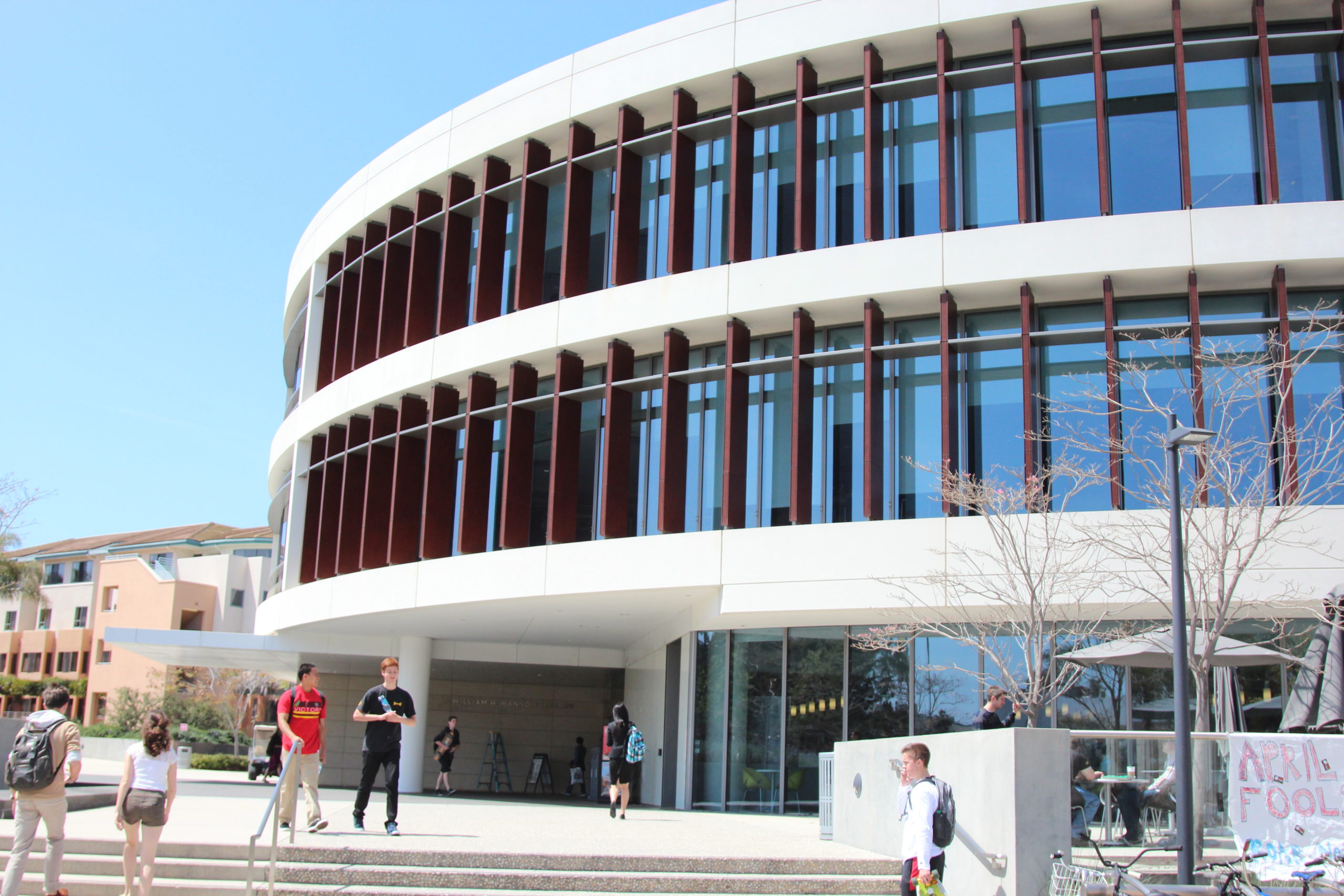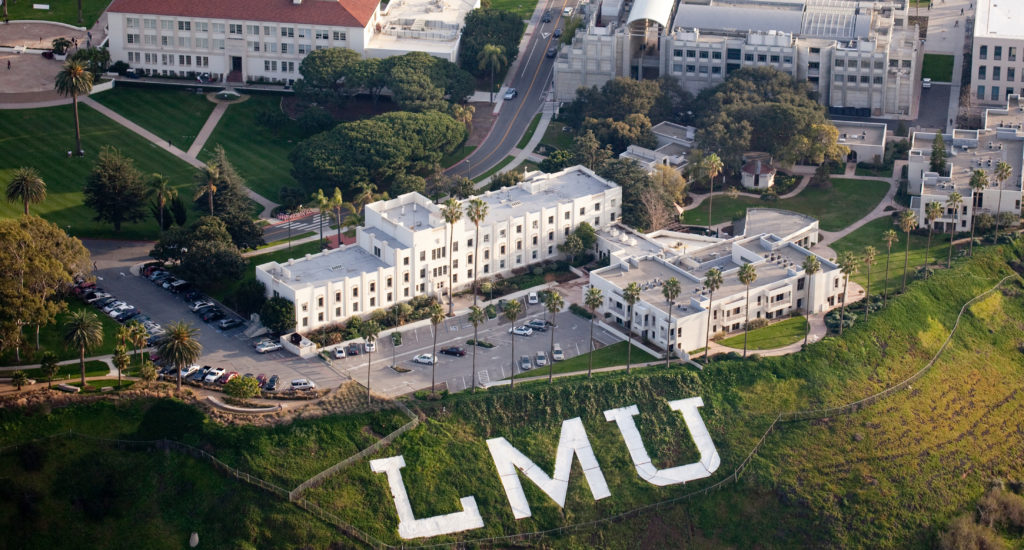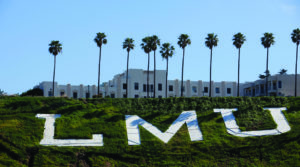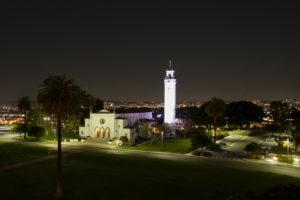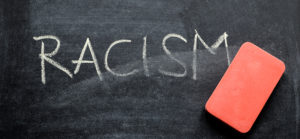Dean’s Notes is a periodic feature of LMU This Week where the university’s academic leaders share their perspectives with the community. The deans of LMU’s seven schools and colleges and the library will provide updates on priorities, policies, events, challenges, and areas of interest.
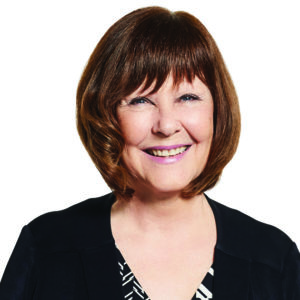
Kristine Brancolini, dean of the William H. Hannon Library, writes:
As any academic librarian will tell you, entering our profession means a lifetime of myth-busting. Images of demurring, “shushing” or vixen librarians persist in popular culture. These images create, at best, gross misconceptions about the work librarians do and, at worst, completely obscure the incredibly complex labor of information acquisition, management, and access. We’re an academic unit that incorporates a business operation, managing a substantial materials budget. In higher education, it is difficult to know what anyone’s job really is, to truly understand the expertise, skills, and professionalism that contribute to teaching, learning, and knowledge creation in academia. Therefore, I offer to pull back the curtain and show you what lies behind the scenes in the William H. Hannon Library. What does it take to “keep the library open,” even when the doors are locked and most of our staff are working remotely? How do we continue to work with each other and our partners across campus to support the LMU community?
The library celebrated its 10th anniversary last year. While it was still under construction more than a decade ago, I was sometimes asked, “How will you attract students to the new building?” My answer: “Unlock the front door.”
The design of the building, its furnishings, its location, and its rich physical collections ensured that it would be a desirable destination for students, faculty, staff, and visitors. In addition to all of the elements you would expect to see in a research library – book stacks, computers, abundant light, study tables, and comfortable seating – our vision was more expansive: To be the intellectual and cultural hub of the campus. We incorporated exhibition and classroom space in Archives and Special Collections to highlight teaching with our unique, rare, and most valuable resources, offering new learning experiences and opportunities for students to express their scholarship through curated exhibitions – physical and digital, with digitized resources from our Digital Collections. Our primary event space, the Von der Ahe Family Suite, allows us to host a community book club, Faculty Pub Night, and a variety of other ways to share scholarship with students through storytelling, conferences, panel discussions, and more. We draw partners from all over the campus for events such as the annual “Haunting of Hannon” with the Theatre Department, which will be online this year (more on that later). Of course, we also welcome students who are studying in the library, where they can find both silent and collaborative work space, depending upon their mood and the assignment. So, yes, the building is beautiful, inspirational, and a frequent destination for students and faculty.
Then the COVID-19 pandemic hit. On March 18, 2020, the library closed its doors to users, as the campus emptied and we responded to stay-at-home orders. All staff transitioned to working remotely. Suddenly, our attention shifted to promoting our electronic resources and providing all instructional and research support virtually. Our message to students, faculty, and staff: “Fear not. The library is open. Virtually. We always have been.”
For more than 30 years, libraries have been the quintessential hybrid spaces. Since the 1990s, we have balanced access to both physical and electronic resources, in-person and online services. We curate and acquire both physical and digital information resources, catalog, and organize them so that users can find and access them; and manage their storage, preservation and delivery through an array of specialized computer systems. So, when the stay-at-home orders were issued and classes moved online, we were ready. Our web team quickly created a guide for remote access to our collections and services, with a link to Online Library Resources and Updates prominently featured on our homepage. We already offered our users easy access to expert librarians, with additional support from our colleagues in AJCU member libraries. For more than a decade we have provided 24/7/365 research support service, available through a ubiquitous chat box on the library website. In support of the Black Lives Matter protests, we created a LibGuides list of recommended e-books and other resources on Black Lives Matter and anti-racism.
At the same time, we began to transition our in-person services, such as library instruction and research consultations, to an online format. Our librarians are internationally recognized experts in face-to-face information literacy instruction; they provide classroom instruction to thousands of students each year. Our own assessment research and the library literature support the effectiveness of engaged learning, which we have incorporated into our instruction program. Now the challenge was to redesign our assignments and in-class activities for the virtual classroom. That work began immediately and continued throughout the summer. Our instructional design librarian led a workshop for librarians and other interested staff on creating effective video tutorials and flipped-classroom materials that could also be used by students independently, outside classroom instruction. The library’s collection of YouTube videos has expanded significantly over the summer as a result of this training.
Perhaps our only persistent problem was to efficiently provide access to physical resources, especially course reserve books and films on DVD that are not available electronically. Although it seems to the average consumer that “everything is available electronically today,” that is very simply not the case. Only about 40 percent of academic books are available from their publishers as e-books, most textbooks cannot be licensed as e-books by libraries (this is a publisher decision, not the library’s), and most of our extensive DVD collection are unavailable on any streaming video platform offered to libraries. To address these needs, selected staff, observing all COVID-19 safety precautions, began working in the library over the summer to scan portions of books and convert DVDs to streaming formats for delivery via the campus video system. We also continued to receive new books and print journal issues daily; fill interlibrary loan request for books and journal articles; and mail books to students, faculty, and staff. The library received and processed more than 4,600 new books over the summer; at the same time identifying and placing orders for an additional 700 new items for the collection. In the fall, our circulation staff worked with library colleagues and Auxiliary Services to set up a pick-up service in the Distribution Center in University Hall.
Loss of the space in which to recognize the scholarly and creative works of our faculty and students hasn’t stopped us either. Our Faculty Pub Night series, now in its 11th year, celebrated the upcoming and recent scholarship of SFTV’s Anupama Kapse and Loyola Law School’s Samuel Pillsbury in early September to a diverse audience of students, faculty, staff, and community members. Our Sunday Jewish Book Group continues to attract more than 40 attendees each month from the local community, though now on Zoom. Even our outstanding library orientation sessions, often lauded as one of the most engaging and entertaining elements of new student and new faculty orientations, were seamlessly migrated to both synchronous and asynchronous experiences (you should ask any of our new faculty hired about the “Hannon Good News” performance we scripted this year). Most exciting of all, we are thrilled to be partnering once again with Kevin Wetmore, professor of theatre arts, to host our eighth annual Haunting of Hannon on Oct.16, during which the demons of LMU Digital Collections will finally be exorcized, live-streaming for your enjoyment, through the creative work of our student performers.
We know we are not the first to say “we are working harder than ever before.” Contrary to common belief, digital information management is neither faster, simpler, nor cheaper than its print counterpart. In fact, it is in almost every instance more time-intensive, more complex, and more expensive than simply purchasing a book or subscribing to a print journal. Nonetheless, we were ready for this challenge; and we hope you feel we have risen to it.
As one faculty member noted, “I just want to say what a phenomenal job the library has really done and to thank you all for that, because the pivot was bad on all of us, but the way we managed the pivot was by relying on you all, and so you had to pivot even more and faster and really be there on a sustained level, and so I’m very appreciative for all the work that you’ve done to support faculty, to support students, to try and get the digital resources that we need. […] For an institution like LMU, this library is really just beyond phenomenal.”
In closing, I want to encourage you to connect with us in whatever way makes sense for you: We are available to support your research needs via email, phone, chat, and Zoom. Faculty, students, and staff can even contact us on social media for research support: The librarian who runs our Twitter, Instagram, and Facebook accounts has a background in information literacy instruction, research in the humanities and social sciences, and reference support. Everywhere you look in the library, you will find experts.
P.S. Fun fact: We have more followers on social media than any other AJCU library. Check out our new weekly Instagram Live series, “Hannon Inside/Out,” where we interview library staff about their expertise and how they support student academic success at LMU.
